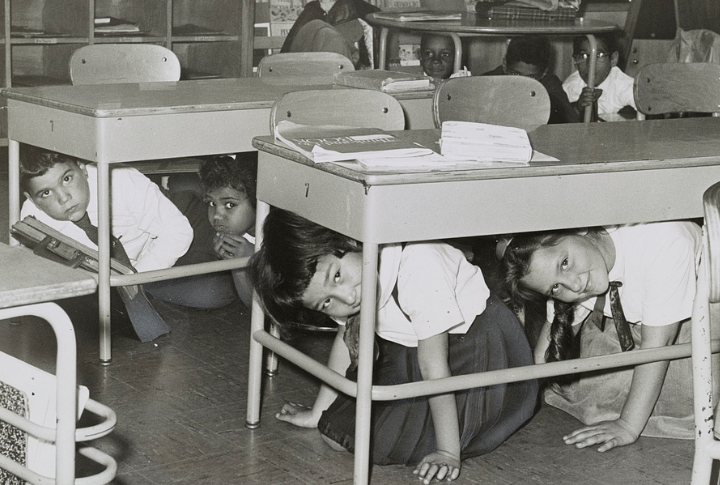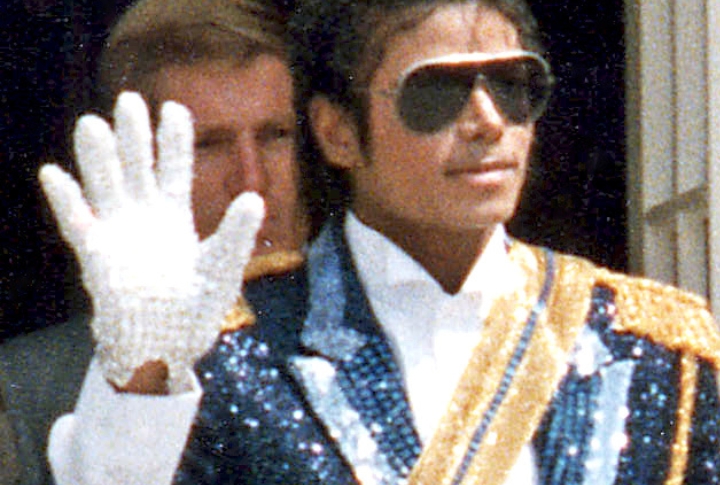
Gen X, a generation that grew up without shortcuts, safety nets, or second chances, has had to be endlessly adaptable. They had no choice but to handle whatever life threw their way as the sandwich generation. This article isn’t about nostalgia; it’s about knowing how their mindset still shapes the way they lead and stay grounded.
Cold War Normalized Existential Threats

Huddling under school desks during nuclear drills made existential threats feel like background noise. The weird normalization trained a generation to live with constant anxiety, giving them a kind of resilience that makes them unflappable when a real crisis hits.
Latchkey Childhoods Built Early Autonomy

Carrying a house key meant running the house before parents came home. This early, forced independence made them incredibly self-reliant and resourceful, never needing a safety net. The generation is unflustered by challenges because Gen X learned to figure things out alone.
MTV’s Raw Cultural Exposure

Before algorithms decided what you’d see, there was MTV—a chaotic (yet fun) cultural blender. It didn’t ask what you wanted to watch. It just served up a wild stream of punk, hip-hop, glam rock, and real-world angst in the most unfiltered way possible. And that’s what Gen X grew up on.
No-Helmet Bike Culture

Nothing says “Gen X childhood” like flying off a plywood ramp with zero safety gear and total confidence. It was exhilarating, but also one of the fastest ways to learn that bad decisions have consequences. Every wipeout ingrained an acceptance of risk, which makes these adults fearless in new ventures.
DIY Problem-Solving Pre-Internet

Before search engines, solving a problem meant using manuals, trial and error, relying on neighbors, calling a friend, etc. This lack of digital shortcuts forged genuine, hands-on resourcefulness. The older generation doesn’t panic in case instructions are missing; they just start tinkering in order to find a fix.
Witnessing The Challenger Explosion In Real Time

Witnessing the Challenger explosion live in classrooms turned what was meant to be a proud moment into heartbreak. That shock broke the idea of perfect authority and taught many to trust their own judgment instead of accepting official stories without question.
Grunge Rejected Glossy Optimism

Grunge was a cultural revolt against corporate polish and forced smiles, and favored raw authenticity. People in the 80s had a built-in defense mechanism against anything fake or manufactured. The perspective makes the generation immune to hype and keeps them firmly grounded in reality.
Cynicism As A Default Defense Mechanism

The famous cynicism isn’t bitterness; it’s an evolved early warning system against being fooled. Having grown up on political scandals, the sophisticated shield allows individuals to quickly size up a situation. To put it simply, GenX anticipates problems, which makes them resilient against emotional surprises.
Surviving The Satanic Panic Without Losing Faith

When adults panicked over D&D and rock music, the generation saw media sensationalism for what it was. It required them to become highly critical thinkers and source filters. People learned to question authority, ensuring they never accept a hysterical headline at face value.
Navigating Divorce As A Generational Norm

High rates of parental divorce in the 80s forced kids to adapt constantly to new homes and blended families. Watching parents split and rebuild shaped how they view commitment—not cynically, but realistically. That kind of perspective creates a hard-won understanding that life doesn’t always follow the fairy tale arc, but it still moves forward.
Analog Childhoods With Digital Adulthood

Starting with rotary phones and ending up with building the internet shows supreme adaptability and technological range. Despite what most assume about Gen X, they’re not intimidated by the next “revolutionary” system change, and they can easily navigate their way through old-school reliability and modern efficiency.
Witnessing The AIDS Crisis First Hand

The terrifying gap between public fear and institutional support during the AIDS crisis taught a generation tough lessons. GenX developed quiet toughness and learned that genuine safety came from self-reliance and community action, not from slow-moving authority.
Pop Culture’s Antihero Archetypes

Individuals were drawn to complex, rule-bending antiheroes like Ferris Bueller and the Outsiders, not flawless cartoon heroes. Such appreciation for the skeptic and the rule-breaker made them fearless in carving their own path and rejecting any sort of stifling conformity.
Recessions Were A Repeating Backdrop

Multiple economic downturns were not a shock; they were simply a recurring backdrop to growing up. This instilled deep financial pragmatism and hustle. The older generation learned to prioritize savings and stability in order to stay grounded and unshakable when markets panic.
Gen X Humor Thrived On Dark Absurdity

The satirical and often dark humor of “The Simpsons” became the generation’s voice. Finding the absurdity in hard times is a brilliant stress-coping mechanism. Instead of avoiding discomfort, they leaned into it, mined it for laughs, and many made it part of their identity.
Minimal Parental Coddling

“Go play outside until dinner” defined the lack of parental hovering. It built independence and self-management skills. They became comfortable making decisions alone, which fueled a personality that didn’t need constant validation or hand-holding to move forward in life.
Early Exposure To Global News Via Cable

Cable TV provided a constant, raw window into global crises, wars, and political turmoil worldwide. This early and unfiltered exposure normalized volatility and conflict. The generation is now emotionally prepared to handle the constant, unpredictable churn of modern life.
No Participation Trophies

Recognition was earned, not given. It taught a clear-cut truth that competition has winners and losers, but hey, they were also taught that failure was simply a learning opportunity. The system built genuine grit and pragmatism and helped them handle professional setbacks without a collapse in confidence.
Witnessing The Fall Of The Berlin Wall

The sudden collapse of the Berlin Wall shattered the biggest political certainty of their lives. It proved that even decades-old, permanent-seeming structures can dissolve instantly. That moment helped people quickly embrace radical transformation and never trust the absolute status quo.
Handling College Without Parents

College was a lesson in pure self-management, which required the youth to figure out registration, housing, and finances all on their own. These moments built exceptional logistical and strategic skills. As a result, the generation became effective leaders who can independently strategize within complex systems.

